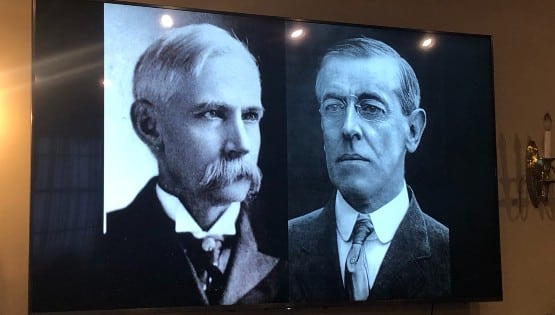
In June, 2009, the Obama administration created a Memorandum of Understanding (MOU) among federal agencies responsible for protecting Appalachian communities from the extreme damage of mountaintop removal coal mining. This MOU made a number of commitments to address major issues, but the results so far have been mixed. At a scheduled interagency meeting with key officials, citizens will discuss concrete solutions and next steps federal agencies can take in cases where progress has fallen short of the MOU goals.
“Five years ago, the Obama administration made a promise to take measures to protect the people, waters, and mountains of Appalachia from the dangerous impacts of mountaintop removal mining,” said Patrick Morales of The Alliance for Appalachia and Tennessee group Statewide Organizing for Community eMpowerment (SOCM). “But mountaintop removal coal mining is still happening, people are still living without clean water, and states are still flagrantly violating the law, and refusing to protect citizens from the impacts of water pollution from coal mining.”
Citizens will present the agencies with a two-year timeline showing their goals for the remainder of the Obama administration. They will be seeking more permanent protections and concrete commitments for what the agencies can accomplish by the end of 2016. The aim of the meeting is to work with the Obama administration to protect Appalachian residents’ health, access to clean and safe drinking water and air, and to encourage long-term economic sustainability that promotes rather than destroys the heritage and beauty of this important region.
In addition to the interagency meeting, mountain leaders will meet with members of Congress and host a rally, titled “Our Water, Our Future,” to demand an end to mountaintop removal coal mining.
The “Our Water, Our Future” campaign was launched in 2013 to highlight the severe impacts that mountaintop removal has on water, as well as to show that clean water is vital to building the economic transition needed in the region.
“The coal industry is never going to be like it was in the 30s. The jobs have been on a decline since the beginning. We need to realistically think of the future of Appalachia, and fix this mess,” said Teri Blanton, a volunteer with The Alliance for Appalachia and Kentuckians For The Commonwealth. “We could employ ten times the number of workers just fixing the toxic pollution mountaintop removal has left behind. We need reinvestment in Appalachia – not just clean energy, but cleaning up the messes left behind by dirty energy.”
Recent spills, such as the West Virginia coal-washing chemical spill that left 300,000 people without access to safe water, have highlighted the economic impact of dirty water in the region.
Two of the Appalachian residents who will be in D.C. to meet with Obama administration officials and members of Congress, are Daile Boulis, of Loudendale, W.Va., and Ginger Halbert, of eastern Kentucky.
Boulis saw the impacts of the chemical spill firsthand. “Because I am lucky enough to still have safe well water, there was a constant stream of people coming to us for drinking water, showering and laundry during the crisis. Now they want to put a mountaintop removal mine by my house and put me on city water.”
Boulis lives near the Kanawha State Forest which is currently threatened by a mountaintop removal mine.Since the threats of the chemical spill and the mountaintop removal near her house, she has become active in the Ohio Valley Environmental Coalition and other groups. “I’d like to take Charleston city tap water to Washington, D.C. and see if they are willing to drink our city water. Because I still won’t.”
Halbert has already had her well in eastern Kentucky ruined by nearby mining activity. “We found out recently that our well water has toxic levels of beryllium, but state agencies have told us there is nothing they can do. We started getting rashes, my husband and daughter were treated for severe joint issues and other health problems, and we were told not to touch our well water. I had to forbid my son from washing his hands, and collect rain water just to mop the floor. Water is a treasure you can’t appreciate until it’s gone – without water we have nothing to build a future with. The government needs to know they are just as responsible as the coal company for the complete lack of oversight on coal mining.”
Jane Branham is with Southern Appalachian Mountain Stewards in Southwestern, Virginia. The group is currently campaigning to hold billionaire coal operator Jim Justice responsible for unpaid debts and pollution in their community. “The legacy of coal is that we are left with a broken economy and a polluted environment. We need federal oversight like never before as coal companies forfeit on bonds and leave their polluted mess behind.” said Branham, who will also be in D.C.. “The states have shown they aren’t going to do it. We need the federal agencies to step in.”
Mountaintop removal and other coal industry abuses have long compromised the waters of Central Appalachia. Over 2,000 miles of stream have been buried by mountaintop removal alone and mountaintop removal has destroyed 10% of the land in central Appalachia – more than 500 mountains. The severe impacts of mountaintop removal show the urgent need to end this practice as well as to begin building towards reclaiming the land and water for a healthier future.
The Alliance for Appalachia is a coalition of groups across the Central Appalachian region working to end mountaintop removal and other destructive coal industry practices, and to create a just and sustainable future for Appalachia. Members include Appalachian Voices, Coal River Mountain Watch, Gainesville Loves Mountains, Hands off Appalachia, Heartwood Forest Council, Highlander Research and Education Center, Keepers of the Mountains Foundation, Kentuckians for the Commonwealth, Ohio Valley Environmental Coalition, Statewide Organizing for Community eMpowerment, Sierra Club Environmental Justice, The Stay Together Appalachian Youth Project, Southern Appalachian Mountain Stewards, SouthWings and the West Virginia Highlands Conservancy.










